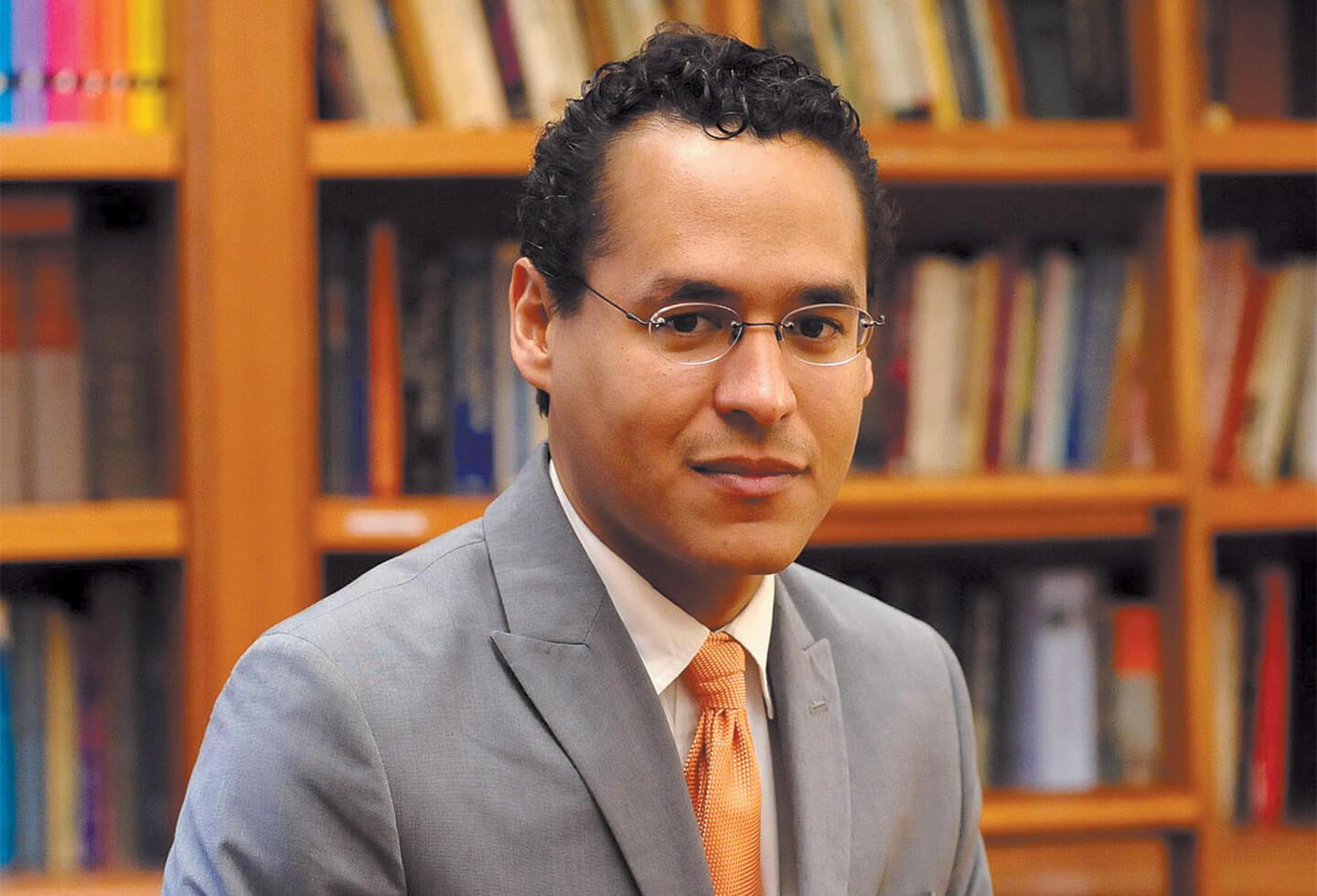Championing the Core
Roosevelt Montás CC’95, GSAS’04

As a first year, Roosevelt Montás CC’95, GSAS’04 signed up for Wallace Gray’s Lit Hum section after overhearing someone say a sibling’s life had been transformed upon taking the Core course with the professor emeritus of English and comparative literature.
“It had a similar impact on me,” says Montás, who was 12 when he and his brother emigrated from their native Dominican Republic to New York City to join their mother, who had relocated to the Big Apple two years earlier. Amid the challenges he faced as a young man coming of age in a foreign country — finding his footing in Columbia’s cultural and social landscape while still mastering a new language, for example — Montás found that Lit Hum gave him “the emotional vocabulary with which to process the bewildering experience that first year at Columbia was for me.”
“Sophocles, Saint Augustine, Montaigne, Dostoevsky — they were not just books I read, but mirrors through which I could better see aspects of my own experience,” he says. “What you walk away with from a Core education is a clearer notion of yourself, a deeper self-understanding. Because of my experience of immigration and the disruption in my life as a teenager, leaving behind a culture and a language and starting anew, I really needed something like the Core to situate myself in the world.”
Now, as the director of the Center for the Core Curriculum, Montas’ drive to preserve and enhance the Core is both deeply personal and intellectual. For him, its value lies in its ability to transcend academia: “The Core is concerned with an idea of education that is more like cultivation, that puts the student at the center of the enterprise,” he says. “[Those of us who teach in the Core] look to the student’s development as a whole human being — not as a future doctor, lawyer or banker but as a future member of a community, — a fully-realized individual.”
What you walk away with from a Core education is a clearer notion of yourself, a deeper self-understanding.
That purpose shapes Montás’ approach to his work. He is essentially the caretaker of the Core, overseeing its administrative side as well as its intellectual and pedagogical aspects. He sits on the Committee for the Core Curriculum, which decides on changes to syllabi, and is directly involved in preceptor training for Lit Hum and Contemporary Civilization.
Montás, whose expertise is in antebellum American literature and culture, also teaches a section of CC every year and has taught Lit Hum. It was the Core that inspired him to earn an M.A., an M.Phil. and a Ph.D. — and to do all at Columbia — where he knew he’d have the opportunity to teach the courses he loved while pursuing his doctorate. “A switch turned on for me in Lit Hum and I really wanted to continue the kind of learning I did in the Core,” he says.
Montás’ vision for the Center for the Core Curriculum includes making better use of technology in Core classes and taking greater advantage of New York City by offering students opportunities to visit museums and to attend performances integral to the Core experience. Noting that Columbia has long been “the standard-bearer for the idea of text-based liberal arts education,” Montás says it is also an objective of the program to “fully inhabit that traditional leadership role by making the Center for the Core Curriculum the flagship scholarly center for the liberal arts.
“I would like for Columbia College’s Core Curriculum to be the central hub in a movement to revitalize liberal education and rebuild great book programs in the United States and the world,” he says.
To help make that happen, Montás serves as a liaison between the Center for the Core Curriculum and other institutions. His mission to share the influence of the Core at Columbia often takes him throughout the U.S. and abroad, to speak about the history and future of liberal arts education. In those situations, his personal passion for the Core also comes to the fore.
“When I talk about what a Core education does for the individual, about the transformation we try to spark in students, and the values and premises that inform our practice, I am describing an experience I’ve gone through,” he says.